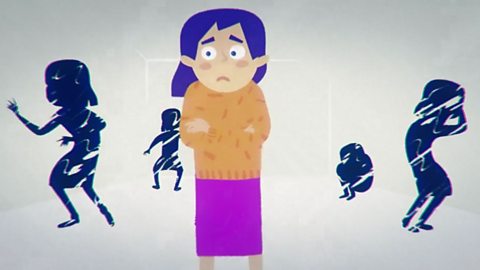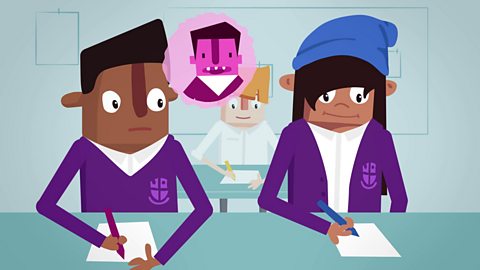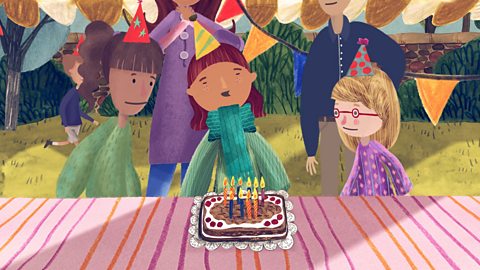Child mental health expert, Shahana Knight, shares her insight into why it's important for both children and adults to understand and recognise their emotions.

Recognising your emotions and learning to manage them is one of the most important skills you can have.
In fact people who are good at noticing how they feel and can calm themselves down or adjust their behaviour are more likely to do well in life, have healthy relationships and manage difficulties and set backs.
Feelings are powerful and can become overwhelming at times. Both adults and children might struggle to manage their responses to their feelings and act in ways that feel very out of their control. For example, have you ever felt so angry that you said things you didn’t mean to someone you love? Then once you calmed down, you realised that your emotions got the better of you and you wish you handled it differently?
We have all behaved this way, but as children grow up, it is important that they are taught how to control these emotions so that they can deal with situations better.
Teaching children about their emotions and how to manage them will give them the strategies and life skills to navigate their way through tough situations and handle them in a more calm, purposeful way.

5 reasons recognising your emotions is important:

1. Understanding the reason behind your emotion
As humans, we have emotions so we can make connections with the people around us and figure out what makes us feel good and what doesn’t.
Our emotions are like our internal compass, helping us to figure out how a situation makes us feel. This then helps us make decisions about whether we want to be in that situation and allows us to figure out what we do and don’t want in life.
We need to be able to recognise when we have an emotion, know what it is and know what it is trying to tell us. For example, if a child is spending time with a group of people who make them feel unhappy about themselves, anxious and under pressure – it is important that they can recognise this and realise that their feelings are telling them that this isn’t the right situation for them to be in.
If they are able to listen to their feelings and respond to them, they are going to be more likely to gravitate toward people who make them feel good about themselves.
A child who does not have this awareness may not even realise that their chosen friendship groups are having a negative impact on their wellbeing.

2. To help you feel more in control
Our emotions can greatly affect our mood and behaviours. If you are feeling angry, anxious or worried a lot it can have an impact on friendships, family relationships, schoolwork and our overall feelings of happiness.
Having lots of negative feelings can also make children feel like not wanting to take part in hobbies or activities outside of school. It is important that we help children recognise when they are feeling unhappy so that they can figure out why and try to find a solution to make themselves feel better.
Having the skills to reflect on their feelings and realise they are in control of how they feel will have a massive impact on their purposefulness and ownership of their life.

3. Negative emotions can lead to negative thoughts
If we struggle to recognise when we are feeling unhappy, this can then lead to unhappy thoughts.
It is really important that we help children realise that they are in charge of their thoughts. If they are spending lots of time thinking things like, “I am not good enough,” or, “No one likes me”, then that is going to affect their mindset and the way they see situations they find themselves in.
Teaching children that they have the power to change those thoughts and that they can decide what they think can change perceptions and mould them in to young people who can reframe negativity, be happier and believe in themselves.
The message children need to hear is that If they believe they can do things - then they can! All they have to do is to believe it. The first step to positive mental health and wellbeing is noticing when we are feeling unhappy and changing negative thoughts.

4. It means we can ask for help
Sometimes when we are feeling down, we need help from those around us - parents/carers, teachers or a friend.
Being able to recognise when you need help with your emotions is important, and often children cannot figure it out on their own. They need ongoing guidance and support with their emotions to help them understand how to calm down.
Often children just need a cuddle from someone they trust when they feel overwhelmed with their feelings. Or someone to listen to them without judgment, where focus is on their feelings and not the situation. Children need to know that they can share their big feelings with a safe adult who will guide them through those feelings.
Learning to communicate with the people around them and identifying what they need in order to help them is a way of children developing healthy ways to regulate their emotions.

5. It helps you to be a better friend
Once you are skilled at recognising your own emotions, managing them and communicating them to others, you can help others do the same!
Children who get really good at understanding people’s feelings will be able to tell when the people around them are not feeling very happy and will be able respond appropriately and help them.
They will be able to help to support their siblings, friends and people around them as they grow up will help them form better relationships.
Tips to help your child manage their emotions:
Meditate: A child’s life is so busy all the time, they don’t get much time to relax, especially with the addition of gaming, technology and social media. Meditation is a brilliant way to calm the mind down, it helps children feel more connected to themselves and helps them feel at peace. Practicing meditation can make a big difference to how they handle emotions when they feel overwhelmed. It is also a brilliant way to help children relax and sleep. Visual relaxations are great because they involve telling a child a story about a relaxing place and, as they listen, they imagine it in their heads.
Mindful breathing: Help children calm down when their feelings are taking over and encourage them to take 10 deep breaths in. It sounds simple but it works! Tell them to breathe in and out slowly. Explain that every time they breathe in, you want them to imagine they are breathing in positivity. When they breathe out, tell them to imagine they are letting all of the negative feelings and thoughts out. Do this five times nice and slowly and it will help them feel better. Remind them that they can do this anywhere, even at school.
Changing negative thoughts: Don’t let those negative thoughts take over. Children need to believe that are amazing and they can be anyone they want to be in life (Because they absolutely can!) They will do wonderful things, if only they believe it. Help them to learn to manage their negative thoughts, if they notice their thinking negative thoughts, encourage them to try replacing them with a positive one. So instead of thinking “I am shy” think “I can do this and what I have to say is worth hearing” or if they think “I can’t do this” change that to “I can do anything I put my mind to”.
Positive affirmations: A positive affirmation is a phrase you can say to yourself that makes you feel good and reminds you that you can do anything and be anyone you want to be. Encourage children to say affirmations to themselves in the morning in the mirror, stick them around their room on sticky notes or have them in their workbooks or planners. Saying things like: “I am strong” “I am in charge of my future”, “I deserve a wonderful life”, “I am healthy and happy” and “I am a good person and people like me” will help change mindsets. The more they say these affirmations to themselves, the more they will begin to believe them.
Mindful colouring: Colouring is not just for little kids! Even adults colour these days. Mindful colouring is where you draw a lot of different squiggles and patterns on a page and then spend time colouring them in. Encourage children to do this when they are feeling overwhelmed, or even as part of their self-care wellbeing strategies each week. You could even set a little time aside and do it with them. Let them take their time, listen to relaxing music whilst they do this, and just let them have some peaceful time. Focusing on colouring helps bring down your heart rate, calm your breathing and focus your mind so teaching children to use this technique will give them a tool they can use when they need to take control of their feelings.
Shahana features in a very special BBC Teach live interactive lesson on Thursday, 10th October 2019, aimed at promoting emotional wellbeing and encouraging a growth mindset in primary school pupils aged 7 - 11. Find out more here.
Growth Mindset and Wellbeing resources:
The Growth Mindset and Wellbeing Lesson - Live
Find out about a special BBC Teach live programme all about emotional wellbeing, aimed at primary school pupils.

Five steps to help children's wellbeing
Clinical psychologist and special guest for BBC Teach's The Growth Mindset and Wellbeing Lesson, Dr Hazel Harrison, has put together five steps we can use to help children's - as well as your own - wellbeing.

Could mindfulness really work for me?
Put simply, mindfulness means paying attention to the present moment. Therapeutically, it trains people to focus their minds and understand that negative thoughts may come and go. But does science back up the claims and is mindfulness worth a try?
